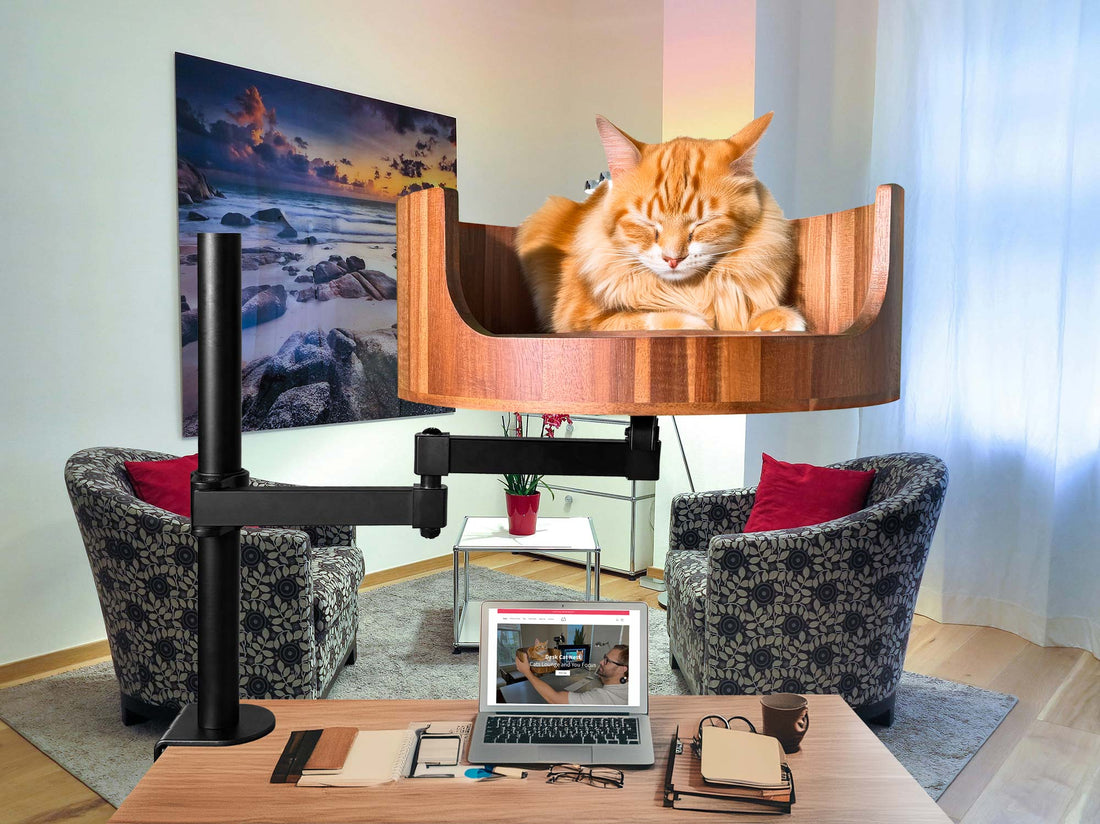
Cat Hissing at Me: Understanding Feline Behavior
Share
You're settling down at your desk, ready to get some work done, when suddenly your cat starts hissing at you. What could have possibly triggered this behavior? Understanding why cats hiss can be essential in deciphering their communication cues. In this article, we will explore the reasons behind cats hissing, how to interpret this behavior, and how to handle the situation effectively to maintain a positive relationship with your feline friend.
Cats hiss for a variety of reasons, ranging from feeling threatened or scared to being territorial or in pain. By understanding the context in which the hissing occurs, you can better assess what might be causing your cat's behavior. We will delve into common situations that may lead to hissing, such as introducing a new pet or moving to a new environment, and provide tips on how to handle these scenarios with care and patience. By gaining insight into feline behavior, you can strengthen your bond with your cat and create a harmonious living environment for both of you.
1. Hissing is a common feline behavior that can signal fear, aggression, or stress.
2. Understanding the context in which your cat is hissing is crucial to determining the appropriate response.
3. Cats may hiss due to feeling threatened, being in pain, or encountering a new stimulus in their environment.
4. It is important to give your cat space and time to calm down if they are hissing, rather than forcing interaction.
5. Seeking advice from a veterinarian or animal behaviorist can help address underlying issues causing your cat to hiss.
Why Do Cats Hiss?
Cats hiss as a form of communication, typically when they feel threatened, scared, or anxious. It is their way of setting boundaries and letting others know to back off. Hissing can also be a sign of pain or discomfort, so it's essential to pay attention to the context in which your cat is hissing. Understanding the reasons behind your cat's hissing behavior can help you address any underlying issues and create a safe and comfortable environment for your feline friend.
How to Respond to a Hissing Cat
When confronted with a hissing cat, it's crucial to remain calm and avoid making any sudden movements that could escalate the situation. Give your cat some space and time to calm down before attempting to interact with them again. Try to identify the trigger that caused the hissing and address it accordingly. If your cat continues to hiss or shows other signs of aggression, it may be best to consult with a veterinarian or animal behaviorist for further guidance on how to manage your cat's behavior effectively.
Preventing Cat Hissing
To prevent your cat from hissing, it's essential to create a stress-free environment for them. Provide plenty of hiding spots, vertical spaces, and scratching posts to help your cat feel safe and secure. Regular playtime, mental stimulation, and social interaction are also key to reducing the likelihood of your cat hissing. It's important to establish a routine and set clear boundaries with your cat to build trust and prevent misunderstandings that could lead to aggressive behavior. By addressing your cat's needs and providing positive reinforcement, you can help prevent hissing and foster a stronger bond with your feline companion.
Frequently Asked Questions
Why is my cat hissing at me?
Cats may hiss at their owners for a variety of reasons, including fear, stress, feeling threatened, or being in pain. It's important to observe your cat's body language and behavior to determine the root cause of the hissing.
Will a Desk Cat Nest help with my cat hissing at me?
A Desk Cat Nest can provide your cat with a safe and cozy space to retreat to when they are feeling anxious or stressed. By giving your cat a designated space to relax, they may be less likely to hiss at you in response to feeling overwhelmed.
How can I introduce my cat to the Desk Cat Nest?
Start by placing the Desk Cat Nest in a quiet and comfortable area of your home where your cat likes to spend time. Encourage your cat to explore the nest by placing some treats or toys inside. Let your cat investigate the nest at their own pace and provide positive reinforcement when they use it.
What should I do if my cat continues to hiss at me?
If your cat continues to hiss at you, it may be helpful to consult with a veterinarian or a professional animal behaviorist to address any underlying issues causing the behavior. It's important to approach the situation with patience and understanding to help your cat feel safe and secure in their environment.
In conclusion, the Desk Cat Bed is an excellent choice for helping to reduce instances of cat hissing at you. By providing a comfortable and safe space for your cat to rest and relax, the Desk Cat Bed encourages a sense of security and contentment in your feline friend. This can help to reduce stress and anxiety, ultimately leading to a decrease in aggressive behaviors like hissing. Additionally, the Desk Cat Bed is easy to install and conveniently fits on most desks, making it a practical and stylish addition to your workspace. Say goodbye to cat hissing and hello to a happier, more peaceful relationship with your furry companion with the Desk Cat Bed.



















































